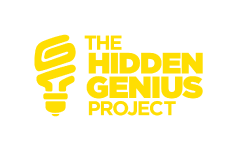
By: Amelia Ransom, Fast Company
Date: Wednesday, May 3, 2023
Corporate DEI strategies are too focused on hiring. Here’s what to do instead
Many organizations focus diversity, equity, and inclusion (DEI) efforts on a single stage of the employee experience: hiring.
When you focus only on hiring people from diverse backgrounds but neglect to foster a culture that supports them, you end up with a workforce where people may think, look, act, and work differently but are unable to leverage their differences to support your company initiatives. If you don’t build the structures to support them, talented people, no matter their background, will quit. The data backs this up: Women leaders, for example, are leaving their companies at the highest rate in years, and representation of Black talent in tech roles has increased by less than one percent since 2018.
The goal of any organization’s DEI strategy should be to fully incorporate different perspectives and ideas brought by people from diverse identities. Anything else is purely performative. To make actual progress, teams need an approach that incorporates DEI more deeply into their organizational structure, business model, and culture.
One way to view this is with a three-layer model. I like to use the analogy of a restaurant, grocery store, and garden as a framework to approach this challenge. When building a diverse workforce, hiring is just one aspect of your model—it’s like eating at a restaurant. If you want long-term success, you also need to learn how to support and foster talent inside your business, which is like cooking with ingredients from the grocery store. And, you need to ensure a healthy pipeline of diverse talent from a breadth of communities, which is like tending a garden.
Here’s how the restaurant, grocery store, garden theory can help you and your team build a better workplace culture.
THE RESTAURANT
Hiring is where most companies focus their DEI initiatives–a bit like ordering from the menu at a restaurant. You’re finding the people you want and bringing them aboard.
This approach may be appropriate when hiring senior talent. Although professional development is still a factor, you’re looking for someone who is thoroughly prepared.
However, companies tend to over-index on this layer of the model because it’s the easiest to measure, and the results are instant. It can lead to a “points” mindset, where people from diverse backgrounds become valued for their identity rather than the value they bring to the company. Nobody wants that.
Hiring people from diverse backgrounds is an essential component of DEI, but it’s not the whole picture. Your DEI strategy should help your team get the best talent, benefit from new perspectives, and drive growth and success. All organizations need to look at other aspects of talent cultivation—what I like to call the grocery store and the garden.
THE GROCERY STORE
Most of us don’t eat out at a restaurant every day. We get ingredients from the store and cook at home. From a DEI perspective, this parallels equitable internal talent development, retention, and advancement.
Like learning to cook, success in these areas demands time, dedication, focus, and investment. And if you think you’ve already achieved it, you might want to dive in deeper. Research shows only 24% of women and ethnic minorities in tech roles feel a sense of belonging at work, despite 75% of leadership executives believing the opposite.
Overcoming these odds requires a multifaceted approach, and typically includes enacting inclusive policies; fostering fair and equitable pay, performance, and promotion practices; creating a learning culture that values listening, feedback, and corrective action; building employee support systems such as resource groups and mentorship programs; and setting DEI goals and holding leadership accountable for meeting them.
These steps may not be easy, but they pay off. You’ll be able to compete for the best people from any background, retain them longer, and support them in ways that deliver the most value for your company. Because of this high return on investment, this is the part of the model where most organizations should focus dollars, time, and attention.
THE GARDEN
Finally, we have the garden, which represents your efforts to cultivate talent earlier—often even before their careers begin. A garden includes investments in education and community, as well as partnerships across organizations and industries.
At my organization, these investments take the form of initiatives like Sponsor X, where we give nonprofits a well-deserved spotlight by replacing our logo with theirs on McLaren Formula 1 cars. Most recently, Sponsor X amplified the incredible work of The Hidden Genius Project, a nonprofit that trains and mentors young Black men in technology, entrepreneurship, and leadership skills. We also partnered with the organization at AfroTech, a tech, investing, and wealth-building conference for the Black community.
Food from the garden takes the most time and effort, but the results are superior to what you can get in a grocery store or restaurant. In the same way, talent cultivated from the beginning will bring the most benefit to your organization. It also demonstrates your commitment to the communities you want to recruit from—the rich soil where talent is widely distributed, but opportunities are not, to borrow a quote from tech leader Leila Janah.
The garden also represents the world beyond your organization. In addition to building a talent pipeline, the gardening mindset nourishes fertile ground for long-term business success. Helping solve challenges of inequity leads to new opportunities. As former Unilever CEO Paul Polman says, “Businesses cannot succeed in societies that fail.”
THINK OPPORTUNITY, NOT CHARITY
The value in DEI is the ability to attract, develop, and retain top talent from all walks of life, and to build a robust company culture where all kinds of people are inspired to do their best work. Research shows that the most diverse companies are more likely to outperform less-diverse peers on profitability. We need diverse ideas and perspectives to solve our most challenging problems and succeed in a complex world.
To attract the best talent, you need to focus on retention and talent cultivation as well as hiring—opportunity as well as salary and benefits. A culture that adapts to make people feel welcomed rather than making them change to fit in.
These outcomes require hard work, dedication, and planning—just like a home-cooked meal or a garden-fresh tomato. But just like gardening and cooking, the journey is fun and rewarding along the way—not bitter medicine, but a delicious banquet.

